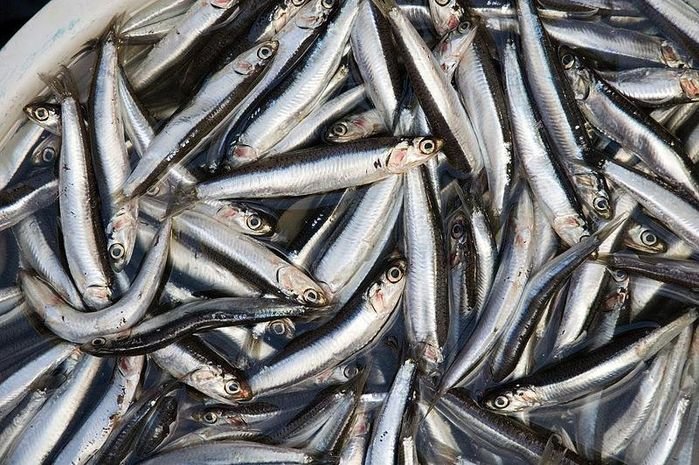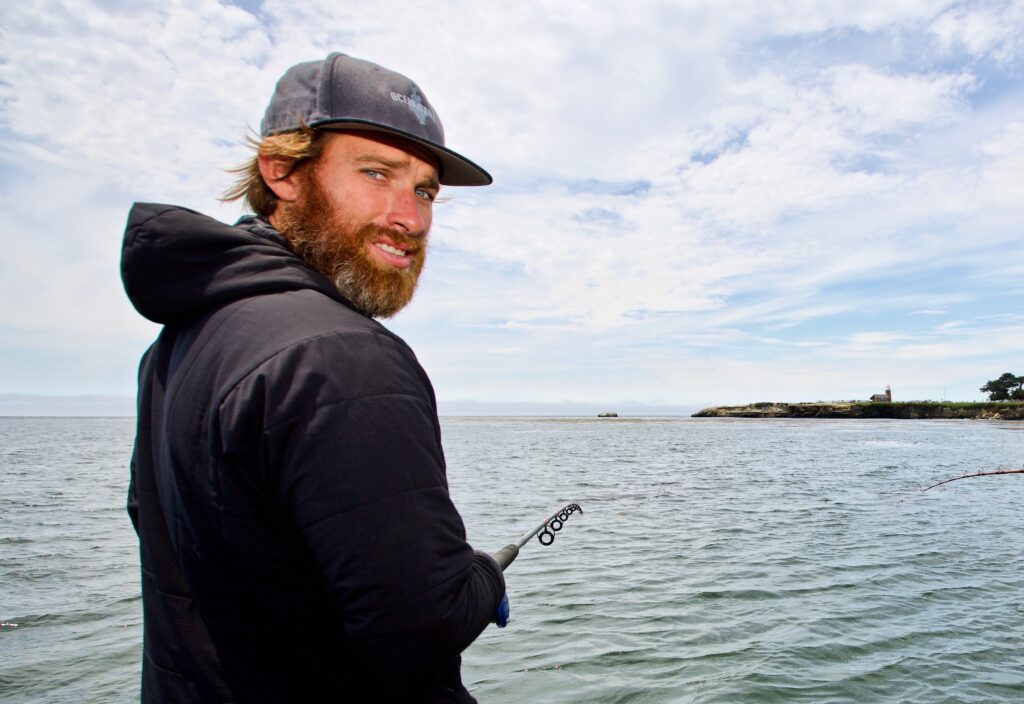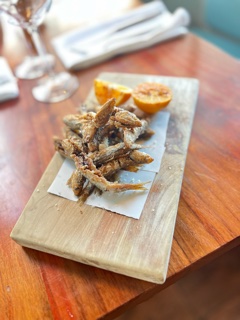
Forage fish are the darlings of many cuisines—herring in Scandinavia, sardines in Portugal, anchovies in Italy—these umami-bomb small fish are the foundation of many beloved national dishes. Funny that they are given the short shrift here!
I am secretly imagining a European chef screaming a reproachful “What’s a matter with you???” Having started my culinary career in Europe, I am a fan of how passionately spirited chefs defend their local bounty.
In spite of the issues with low numbers of sardines and smelt this year, we currently have an abundance of anchovies in the bay right now, and chub mackerel will start in just a few weeks. At Wild Fish it is a joyful gift when we see on the availability list that anchovies are on the market. Unfortunately, it is a rather rare occurrence, compared to other fish.

Ian Cole gets his fish on the list within 24 hours of catch and tells customers via email. At Wild Fish, we have been snatching them up as soon as we see them, in addition to the amazing abundance of other fish he supplies! I ask him why we don’t get sardines, anchovies and smelt more often and his reply ends up being a rather poignant whole story about local fishing.
“There just aren’t many fishermen that know how to fish for anchovies. There used to be, but it is a dying skill. The net used is called a lampara and very few people know how to use it. Not only that but fisherman don’t believe there is a market for it,” says Cole.
My imaginary European chef is getting red-faced hopping mad now. “If there were a market, then they would start to fish for it,” he adds.
We have a situation where 90% of our local seafood is being exported, and 90% of seafood consumed is imported (mostly farmed). Does anyone else see a problem here? More importantly, does anyone else see a solution?

I’m sure Edible readers know that forage fish are the best for you—high in Omega 3’s—and that they are not at all in the pricey, high-cost league as overly marketed fish. They are native to our bay and while fish stocks organically increase and decrease all the time, right now anchovies are super abundant.
The big players who mostly harvest the small fish are large corporations, but wouldn’t you like to support local fishermen and give them the market for some damned delicious delicacies?
You no doubt have heard that the Dungeness crab season has been cut short and that the king salmon season will not happen this year, directly related to climate change and directly devastating revenues for local fishermen. Cole says that if consumers don’t diversify and support local, the generations of infrastructure built up over decades will just disappear this year. Local fishermen rely on Chinook and Dungeness as the backbone of their income and they are now forced to pivot to other species.
Really, this is a gift in disguise, since the alternatives are sablefish aka black cod, petrale sole, rock cod and Pacific halibut which, when you get them fresh, as Ian guarantees, they taste like sunshine. Add to that the very exquisite forage fish that could become a staple if they are requested, and we are the luckiest community in the whole USA. Really we have an amazing fresh bounty of fish locally—consider buying local!
You can get on Cole’s email list by going to the Ocean2Table website getocean2table.com and signing up for the weekly email. CSF boxes of fresh fish are delivered to your home, a delivery charge applies. Ian also works with local organic farmers, bakers, cheesemakers and foragers to include other produce if you choose.
Why as owner of a fish restaurant do I care so much about you buying directly from local fishermen? That’s easy…we all want them to be here to survive and thrive! We at Wild Fish work with local suppliers and want to keep the local economy thriving. We also want the best quality fish available which is hands down going to be local every time!
Wild Fish • 545 Lighthouse Ave. Pacific Grove • wild-fish.com


